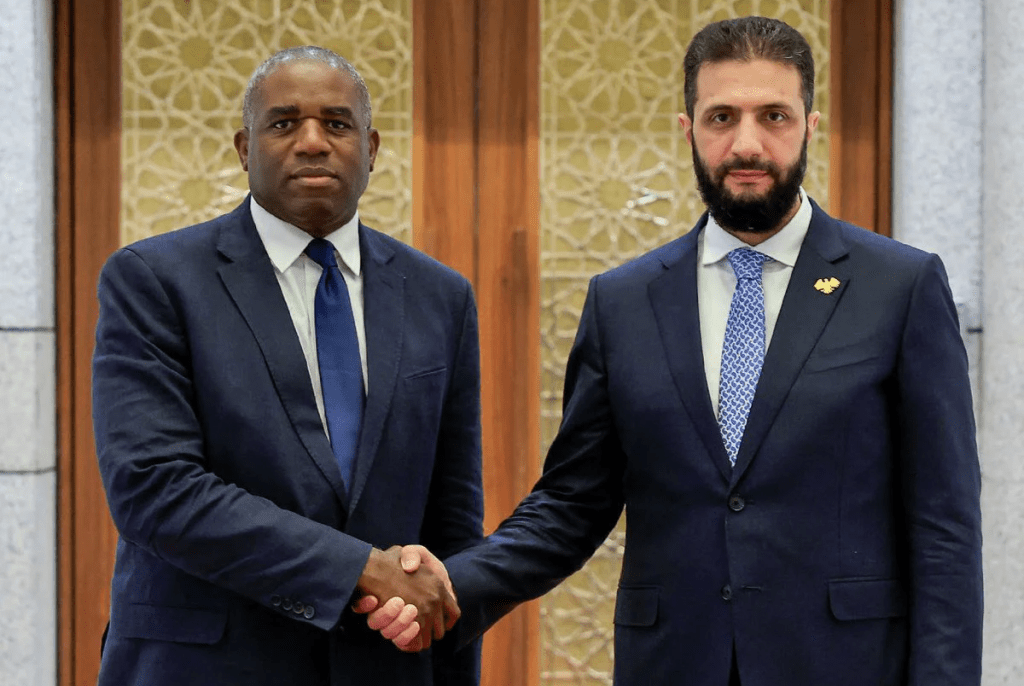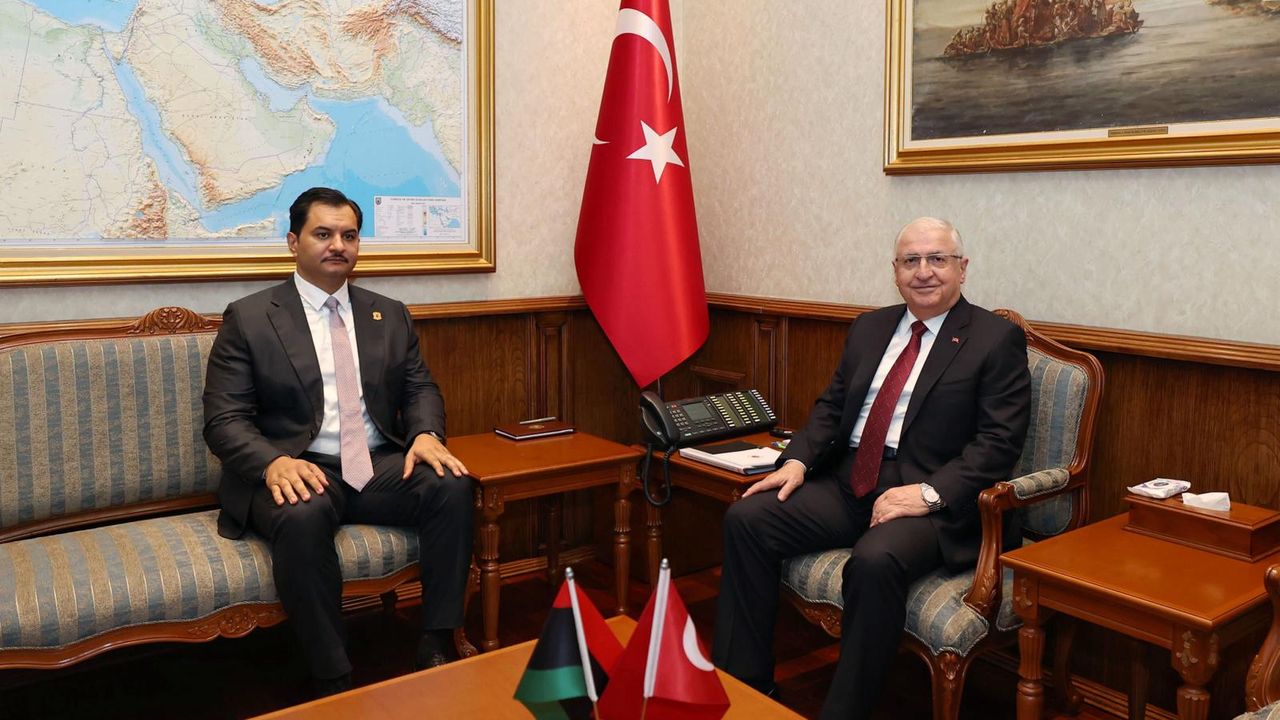UK reestablishes diplomacy with Syria

The UK reestablished diplomatic ties with Syria as the British Foreign Secretary visited the country, marking the first UK ministerial visit since 2014, the BBC reported on July 5th.
Another notch in the trend of Syrian entry into global diplomacy, closely followed efforts by Syria and Morocco to reestablish diplomatic ties, as reported by Maghrebi on June 30th and Yabiladi on June 27th.
UK Foreign Secretary David Lammy met Syria’s President Ahmed Al-Sharaa in Damascus to express and offer the UK’s support for Syria’s transition into an equitable democratic state.
Lammy said: “I’m here to speak to this new government, to urge them to continue to be inclusive, to ensure that there’s transparency and accountability in the way that they govern.” He then added: “But [also] to stand by the Syrian people and Syria as it makes this peaceful transition over the coming months.”
There are concerns in the international community about Syria’s new rulers, as many of them, including Al-Sharaa, were members of Hayat Tahrir al-Sham. This is an organisation that the UK has listed as a proscribed terrorist group.
When confronted on the issue, Lammy stated that the UK was looking to the future rather than a complicated past. The UK had ended its sanctions against Syria, as had the US. The US said it would closely monitor Syrian affiliations and actions in regard to terrorist activity.
In the meantime, violence unravels in Syria against its minority groups. The Alawite community, ousted leader Bashar al-Assad’s own ethnic denomination, has been experiencing attacks. The Druze, which are another minority group, and Christians in the country, have also been targets of violence in recent months.
Furthermore, despite the progressive and inclusive messages conveyed by the incumbent government of Syria, restrictions on social freedoms proliferate, the role of women is being diminished in the government, government posts seem to be gained by connection rather than merit, and the enforcement of Islamic practices is snowballing. The idea of governance being based on civic codes representing the whole of society has not been fulfilled.
The UK hopes to steer the Syrian government into its commitment to inclusive, meritocratic ideals, with its humanitarian support. Lammy hoped the UK’s support would “ensure that the balance is tipped in the right direction, a balance towards accountability, transparency, inclusivity for all of the communities that make up this country, a prosperous one and a peaceful one.”
The UK has pledged to continue its assistance to the Syrian government through efforts that aim to dismantle the remains of the Assad regime’s oppression, such as Assad’s chemical weapons programme.
Alongside the £837,300 already provided to the Organisation of the Prohibition of Chemical Weapons (OPCW), the UK has offered an additional £2 million to the OPCW to fund its efforts to tackle Assad’s chemical weapons programme in Syria.
Lammy also warned Israel against actions that would exacerbate Syria’s security situation, at a time when Syria and Israel might be close to normalising relations, as Maghrebi reported on May 20th and Middle East Eye via Kan News reported on May 15th.
Although the situation remains precarious in this new phase of the Middle Eastern country, Syria has garnered the hopes of many governments worldwide that seem to have a cautiously positive outlook on the new government’s abilities and intentions.
BBC, Maghrebi.org, Yabiladi, Middle East Eye via Kan News
Want to chase the pulse of North Africa?
Subscribe to receive our FREE weekly PDF magazine











